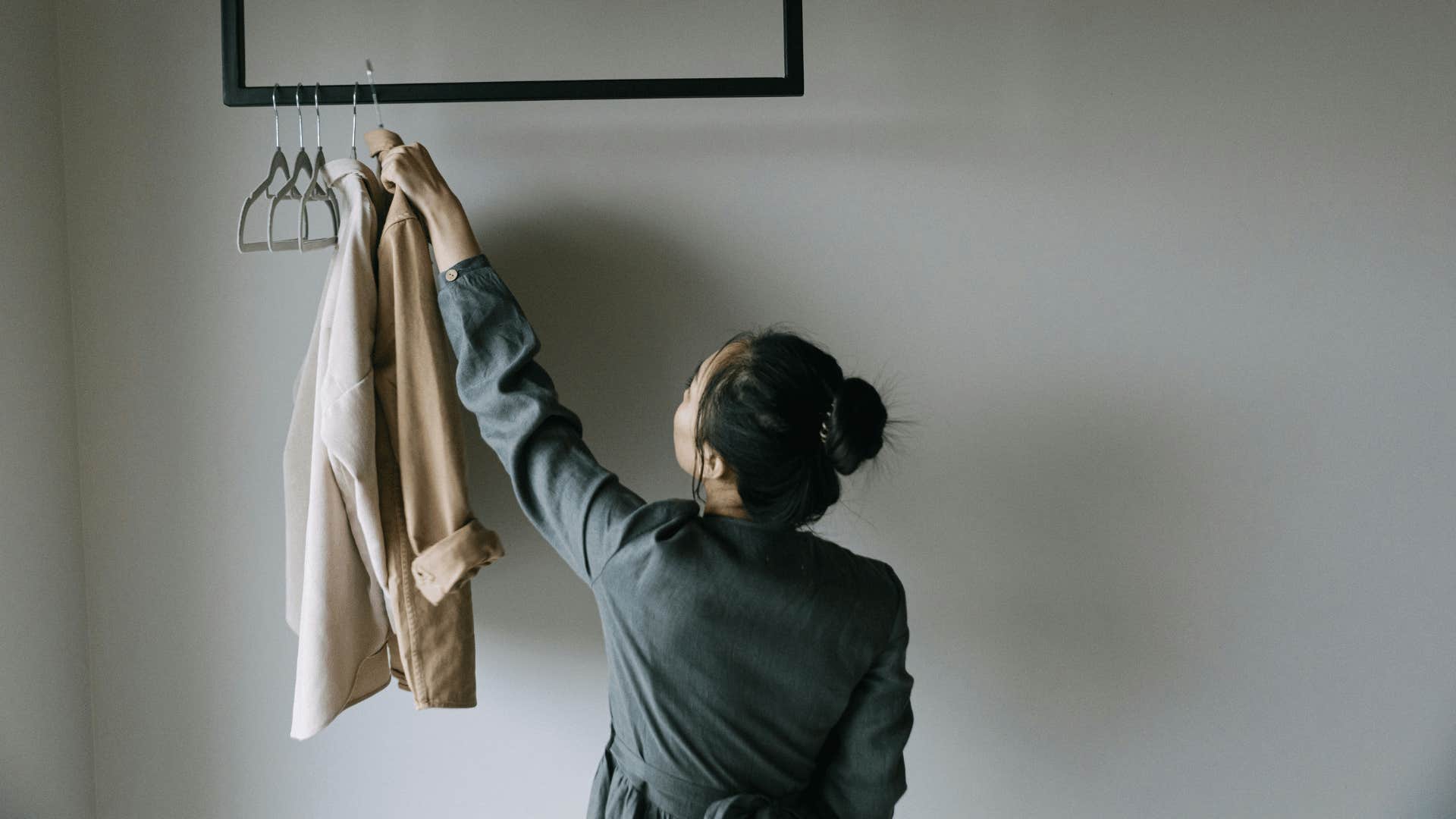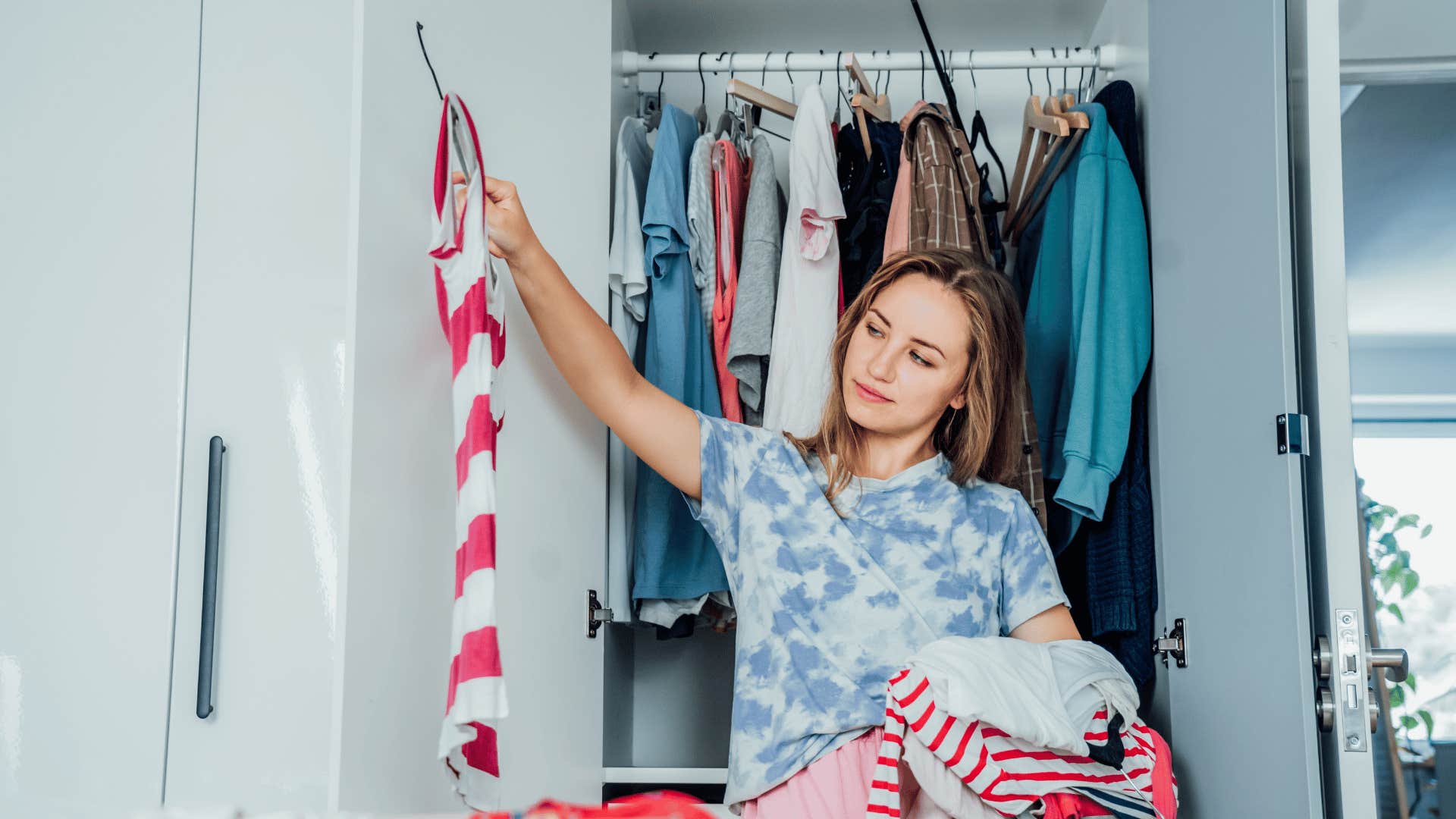10 Ways Living Minimally Has Created Unfair Advantages For Millennials Over Baby Boomers
We can do, be, and have everything we want, but does it truly add to your life?
 Kaboompics.com | Canva
Kaboompics.com | Canva Many of us are overwhelmed by all the habits and routines everywhere that we have been conditioned to believe we need to succeed. Life gets easier when there’s less to think about and less to expectations to meet when you're marching to the beat of your drum. So, how do we simplify and live minimally?
Minimalism — as millennials have embraced — is a lifestyle philosophy fairly unfamiliar to the Baby Boomer generation that simplifies and removes excess. It’s about prioritizing what matters the most and letting go of the rest. When we do, we create more bandwidth, our stress decreases, and we become more effective. What may have worked for the generation that raised us might not necessarily work for our productivity today.
Here are ten ways living minimally has created unfair advantages for millennials over Baby Boomers:
1. No multitasking means less distractions
 fizkes | Shutterstock
fizkes | Shutterstock
That’s so 1994. Become a pro at single-tasking. Do one thing at a time without distractions, and I mean no distractions. Get rid of your phone while working.
Whatever you’re doing, go all in with all your attention. This one thing will set you apart, making you more handsome and life far more effective and enjoyable.
Research published in Psychonomic Bulletin & Review showed that multitasking has several disadvantages, including reduced productivity, increased error rates, impaired cognitive function, elevated stress levels, and decreased quality of work. The brain must work on switching between multiple tasks simultaneously, leading to less efficient processing and attention divided across different stimuli.
2. Delegating means no more working on things you dislike
 fizkes | Shutterstock
fizkes | Shutterstock
Most of us grind through the day working on tasks we dislike while forgoing time spent on things that are far better suited to us and our strengths. It’s not a loss to pay someone to help you if it means creating more time for higher-value activities that ultimately earn you more.
According to The Business and Management Review, outsourcing offers several advantages for businesses. These include cost reduction through access to lower labor costs, the ability to focus on core competencies by delegating non-essential tasks, access to specialized talent, increased flexibility and scalability, and the potential for improved operational efficiency by leveraging external expertise and technology.
3. Cutting out everything but the essentials means you can always reassess priorities
 fizkes | Shutterstock
fizkes | Shutterstock
It’s easy to allow life to muddy our priorities. As the days go on, we say 'yes, please' to more and more stuff, often without realizing how much we’re weighed down by taking on too much.
Chill for a second and say no. Regularly re-assess your priorities and ruthlessly cut everything non-essential.
4. Having fewer clothes means less laundry
 Ivan Samkov | Pexels
Ivan Samkov | Pexels
I mean owning less. Clothes can become an unruly amorphous organism living in our wardrobes. We buy more and more and don’t even use all of it. Clothes and shoes take up space, mental bandwidth, and time spent deciding on what to wear, cleaning, and processing. Make life simple by keeping a minimal wardrobe.
A minimal wardrobe, also known as a capsule wardrobe, offers several advantages. These include saving money by reducing impulse purchases, boosting confidence by having well-coordinated clothes, minimizing decision fatigue when getting dressed, promoting sustainability by consuming less clothing, and creating more space in your closet. According to a study from the University of North Carolina at Greensboro, it allows you to focus on quality pieces that reflect your style rather than chasing trends.
5. Cutting things out means protecting your energy
 GaudiLab | Shutterstock
GaudiLab | Shutterstock
A super helpful part of my month is running an ‘energy audit.’ I list everything that both drained and boosted my energy over the month, splitting it into two columns. This clarifies what to actively cut out and what’s worth keeping or amplifying.
6. Eating the same healthy stuff every day means no last-minute dinner frenzy
 Dragana Gordic | Shutterstock
Dragana Gordic | Shutterstock
It’s a lie perpetuated by a confused society that we need a diverse and colorful menu of meals and snacks daily. We can enjoy a food explosion occasionally at a restaurant, but our dining experience needn’t be crazy. Eat the same unprocessed meals daily, and you will feel better and spend less time preparing.
A 2021 study suggests that consuming minimal healthy meals, which typically consist of whole, unprocessed foods with limited added sugar, salt, and unhealthy fats, offers several advantages. These include weight management, improved blood sugar control, reduced risk of chronic diseases like heart disease and diabetes, better digestion, and potentially enhanced cognitive function due to consistent nutrient intake and reduced calorie consumption.
7. Fazing out screen time means more IRL experiences
 l i g h t p o e t | Shutterstock
l i g h t p o e t | Shutterstock
While most people’s screen time spirals upward, you can buck the trend, step outside the Metaverse, and experience a better life. It’s a known fact that screen stimulation is frying your dopamine sensors, making it harder to be motivated.
Gradually replace high-stimulation screen time with real-world activities like creating, conversations, and reading books. This will help you return to your natural levels of motivation.
8. Creating routines means life can somewhat exist on auto-pilot
 insta_photos | Shutterstock
insta_photos | Shutterstock
Have several projects going on if you want, but keep an eye on the one or two absolute daily essentials that drive opportunities. Do the ‘boring’ stuff that most refuse every day, and you will surge ahead.
A 2018 study on the importance of creating habits and routines found that establishing consistent routines with key daily activities significantly contributes to overall well-being, productivity, and achieving long-term goals. These routines often include elements like exercise, healthy eating, sleep hygiene, personal development activities, and prioritizing essential work tasks.
9. Having less things means you can travel on a moment's notice
 Okrasuik | Shutterstock
Okrasuik | Shutterstock
Can you leave where you live at short notice and be able to carry all your belongings on your person? It’s not possible for many, and you may have no interest in this.
But we live in a chaotic world, whereby those who have the flexibility to move quickly and travel light have a tremendous advantage. Being location-flexible means you’re forced to think hard about what belongings need to go so you can stay nimble (with minimized stress).
10. No chasing novelty means appreciating what you already have
 Gorodenkoff | Shutterstock
Gorodenkoff | Shutterstock
The need to have and experience novelty is not only continually crammed down our throats, but it’s becoming more of a possibility for more of us. We can do and be and have everything we want.
But is it adding to your life, truly? Some novelty is great, but when you bring awareness into your day, you might realize that much is to be gained by making fewer commitments to fewer things (and people).
Do more with less. Become a better steward of the few things you have instead of spreading yourself about like cream cheese. More singular focus and attention mean more impact and joy.
A 2022 study by Neuron identified novelty seeking as a personality trait. The study explored the negative consequences of excessive novelty seeking, the importance of finding a balance between seeking new experiences and maintaining stability, and strategies to manage this tendency. It often linked novelty seeking to areas like substances, mental health, and decision-making under uncertainty.
Alex Mathers is a writer and coach who helps you build a money-making personal brand with your knowledge and skills while staying mentally resilient.

